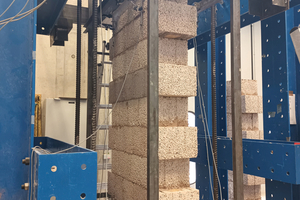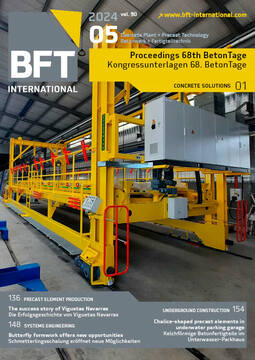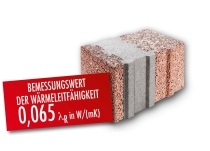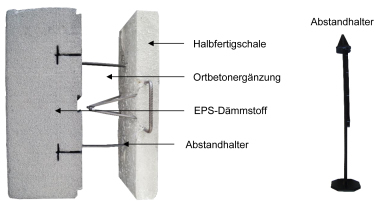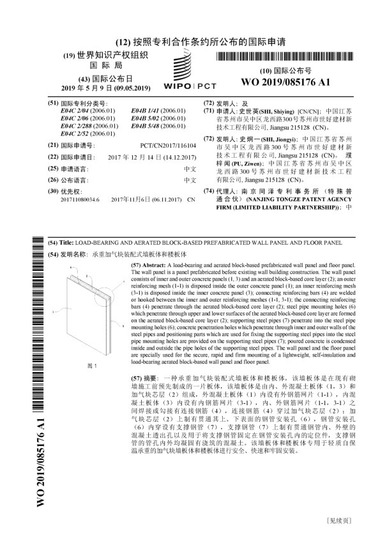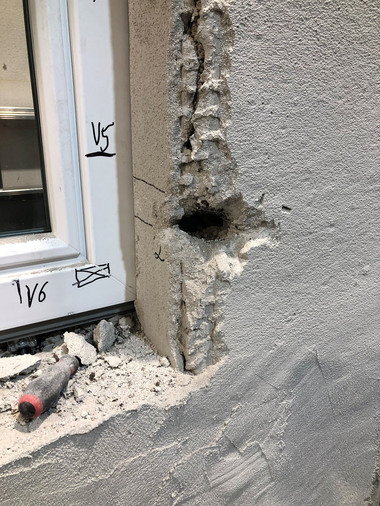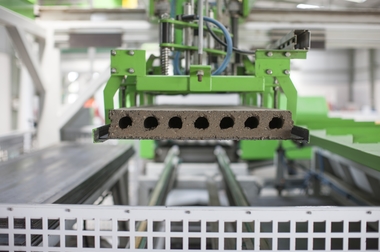Efficient monolithic masonry made of lightweight
concrete blocks
As a monolithic wall-building material, masonry made of lightweight concrete blocks needs to fulfill various functions at the same time – in addition to the load-bearing capacity, these include in particular soundproofing and thermal insulation. The products are continuously optimized by the manufacturer in order to optimize and guarantee all required properties. Thermal conductivities of up to 0.07 W/m/K can be achieved today, in particular through the use of insulation fillings and adapted hole patterns. As such blocks deviate from standardized products, their use in load-bearing structural components requires the relevant national technical approvals or general type approvals by the German Institute for Structural Engineering (DIBt). This requires realistic component testing such as that carried out at the Laboratory for Structural Engineering at Regensburg University of Applied Sciences. It should be noted that the model assumption of the stress block is the basis for verifying non-reinforced masonry under centric and eccentric compressive loading and deviates from the actual behavior. This simplification in design needs to be taken into account in the evaluation and assessment of the tests. Special attention must be paid to the fact that in the nodes of floor slabs that connect to exterior walls, the former are generally only supported in part – usually two thirds to three fourths of the wall thickness – in order to reduce thermal bridges. For verification of the component load-bearing capacity in accordance with DIN EN 1996/NA, these special features in the detailed design are taken into account in the local verification at the top and base of the wall. Appropriate boundary conditions were taken into account in the tests performed at Regensburg University of Applied Sciences.

